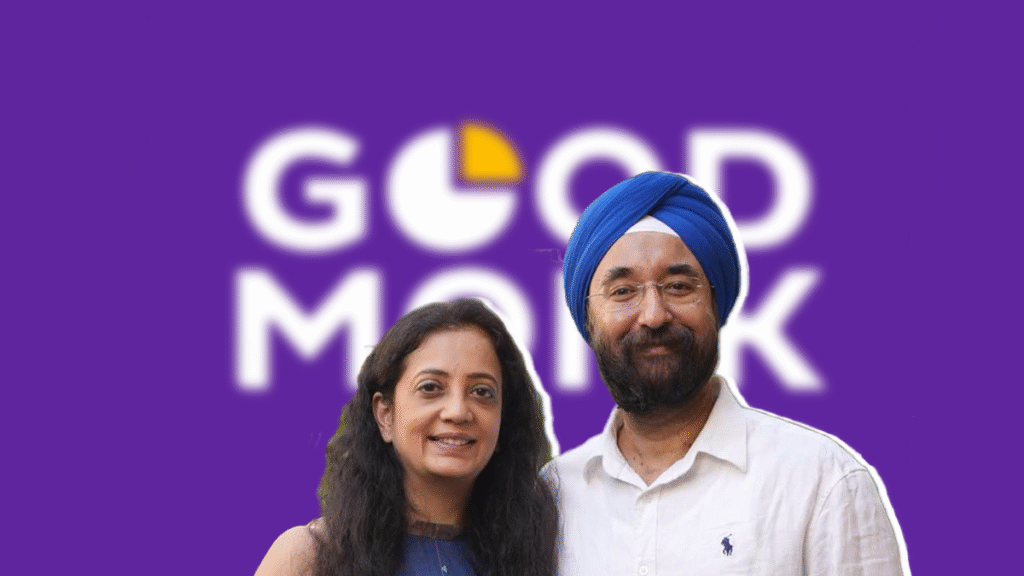Inside the investor-winning playbook of India’s rising nutrition brand and what startup founders can learn from it.

In the ever-evolving landscape of Indian healthtech, where innovation often struggles to meet capital, Chennai-based nutrition startup Good Monk has made a powerful statement. With a $2 million investment led by RPSG Capital Ventures, Good Monk has done more than just secure funding—it has created a roadmap for how mission-driven startups can thrive in India’s competitive ecosystem.
This strategic fundraise offers more than just headlines. It brings to light five powerful lessons every early-stage healthtech startup should pay attention to—lessons that could mean the difference between stagnation and exponential growth.
Let’s explore the insights that emerged from Good Monk’s funding journey.
Build a Product That Solves a Real, Large-Scale Problem
Good Monk isn’t just another health brand offering trendy supplements. It targets a widespread issue—hidden hunger—through a daily nutrition mix that integrates effortlessly into everyday Indian meals. While many startups get lost in developing features, Good Monk focused on functional simplicity and mass relevance.
Lesson for Startups:
Venture capitalists aren’t just funding creative ideas—they fund solutions to real problems. Especially in healthtech, product-market fit must feel inevitable. The more relatable and practical your product is, the easier your funding conversations become.
Leverage Science and Credibility Early
Good Monk went beyond just marketing buzzwords. The team prioritized clinical validation, nutritionist collaboration, and R&D investment to ensure the product was not only marketable but also scientifically sound. In a time where consumers demand transparency and results, this approach distinguished them from less credible competitors.
Lesson for Startups:
In a domain as sensitive as health, data builds trust. Clinical studies, expert endorsements, and compliance frameworks are not optional—they’re essential. Show investors you’re not only innovative but also serious about safety and trust.
Craft a Purpose-Driven Brand Story
The name “Good Monk” conveys more than a product—it evokes a lifestyle rooted in simplicity, wellness, and care. The brand messaging is clear, emotionally resonant, and culturally relevant, which helps in building trust with customers and investors alike.
Lesson for Startups:
Your brand story is your strongest emotional connector. Founders who articulate their mission with authenticity and clarity gain traction faster. In crowded markets, investors remember stories more than statistics. A powerful narrative builds brand equity from day one.
Choose Investors With Strategic Fit, Not Just Capital
Good Monk’s decision to raise funds from RPSG Capital Ventures, a fund with a strong track record in consumer brands and health-focused investments, reflects a smart strategic move. The VC not only brings funding but also deep domain expertise and networks that align with Good Monk’s long-term vision.
Lesson for Startups:
Choose your investors as partners, not just backers. Align with those who understand your market, model, and mission. The right investor contributes strategic value—opening doors, making key introductions, and guiding you through growth challenges.
Show Traction Early—Even If It’s Small
Before raising this round, Good Monk had already validated its idea through pilot programs, consumer feedback, and market testing. Even limited but measurable traction builds investor confidence and signals readiness to scale.
Lesson for Startups:
Momentum is your best marketing tool during fundraising. Show that your concept is working in the real world, that people are responding, and that the foundation for scale is already in place. Even small wins, well-documented, can unlock capital.
StartupByDoc Takeaway:
The Good Monk funding story is more than just a milestone for a single brand—it’s a blueprint for the next generation of Indian healthtech startups. In a funding environment where investors are becoming more selective, what truly matters is execution, clarity, and alignment.
At StartupByDoc, here’s our biggest takeaway for early-stage founders:
“Solve a real problem. Back your claims with credibility. Tell a story that connects. Choose investors who believe in your mission. And most importantly, move before the money comes in.”
In 2025, it’s not just about having a great idea—it’s about demonstrating readiness, resilience, and real-world relevance.


